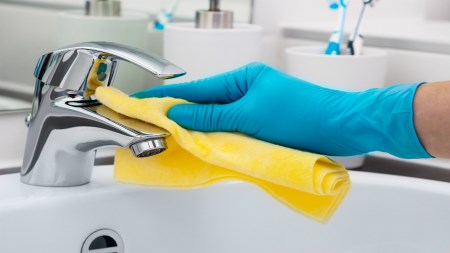If you’re wanting to declutter your home but can’t quite wrap your mind around having to ask yourself whether each item “sparks joy”, then this one’s for you.
By now, most of you will have read about or heard of at least one decluttering practice floating around home décor circles. Whether it be Marie Kondo and her infamous KonMari Method or the well-known art of minimalist living, giving our homes a good decluttering is essential for giving any space a new lease on life. But with so many decluttering practices and theories on offer, it can be tricky to know how best to approach things and question them for yourself - especially if you prefer a more practical approach than that of the “warm and fuzzy”. With this in mind, we’ve been on the lookout for some truly practical questions to ask yourself when embarking on decluttering your home. Here are some of the most useful we’ve found:
When last did you use it?
Perhaps the most practical question to ask when kicking off a home decluttering is to question the value and actual usage of each item in question. While some of your household items will be used seasonally, like that overstuffed box of Christmas decorations, there are some items that you may find you haven't used within the last year or have forgotten about completely. Such items should be carefully considered before they find their way back into the cupboard - if you haven’t used it for a year, or have forgotten that it even existed, it’s probably time to pass it along to someone else.
Is hanging onto it beneficial?
While this question might seem a tad hardcore in nature, it really does help get to the crux of what is and isn’t important to hang onto. Even when out shopping, ask yourself how the object you're about to buy will directly and objectively benefit you and your life as they currently stand. If you can’t really give yourself a good reason, it’s perhaps an indication that the benefit isn’t as great and initially thought.
Is it replaceable?
Similarly, asking whether an item can be replaced by something you already own is another great and practical decluttering question to ask yourself. For example, why hang onto that old blender when your new smoothie maker does the same job in half the time? If you find you’ve doubled-up on items in too many instances, be sure to take a hard look as to which items benefit you most.
Would it go with, if you moved?
Moving is the great equalizer when it comes to your stuff. When space comes at a premium and moving boxes are limited, you start to ask yourself what you really need at your new place. But you don’t have to wait until moving day to declutter. Ask yourself if you’d keep your stuff if you moved to a new home and you’ll quickly see what’s important and what you should pass on to someone else.
Why do you still have it?
Think about why you’re keeping certain items in your home. Is it obligation? Guilt? Or because you truly love something and can’t imagine your home or life without it? It’s a question that bears asking and might have some surprising answers.
Would it be of use to others?
It’s easy to get attached to things in our homes. They’re often tokens of memories and experiences, even if they don’t really need to take up shelf space. But if you’re not actively using something, are you robbing someone else of the chance? It can be hard to let stuff go, so try being pragmatic. Would someone else use and love it the way you did? It’s easier to give your stuff a new life when you know it’ll be in good hands.
Would you buy it again?
As you’re decluttering, ask yourself, “If I saw this item in a store today, would I pay full price for it?” You’ll quickly see which items you’re keeping because you love them, and which items are just there because you haven’t decluttered yet. Your taste, lifestyle and preferences change over the years. If you wouldn’t get excited if you saw that picture frame, throw pillow or vase at the store, it’s probably time to let it go.
Does keeping it make you happy?
Fine, I’ll admit that Kondo was onto something. While “sparking joy” shouldn’t be the only decluttering criteria, it can help you. It’s all too easy to hold onto things out of a sheer habit. It’s also easy to just make a clean sweep in the spirit of minimalism. Somewhere in the middle, however, is the reality: stuff can make you happy. Whether it brings memories, it’s useful or you just like it, if it makes you happy, it’s worth making the space. Just remember to not ascribe too much of your happiness to your stuff.
Decluttering your home can help you stay organized and tidy, reducing stress. But the very act of decluttering can be super stressful. While Marie Kondo is the leader of the anti-clutter movement, expecting your belongings to spark joy might be putting too much pressure on your favorite umbrella or childhood teddy. Think more objectively about the process and you’ll achieve a home that is decluttered, organized and, yes, even joyful.
For some, simply relying on the notion of, “what brings you joy” to facilitate a good home declutter isn’t enough. Sometimes “joy” wasn’t the only reason why you bought that item and it probably won’t be the reason why you choose to get rid of it. For some, a sentimental approach to decluttering works and for others, a more practical approach is the way to go. At the end of the day, decluttering is about connecting to the items in our home that are truly important to us - whether we achieve this practically or emotively is up to each of us, and ultimately part of our own journeys of discovery.




